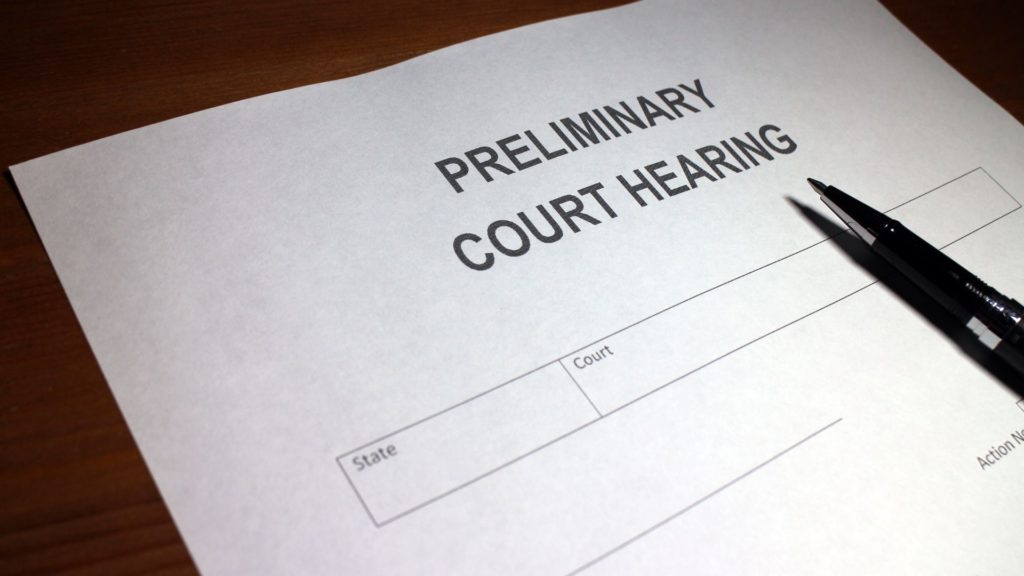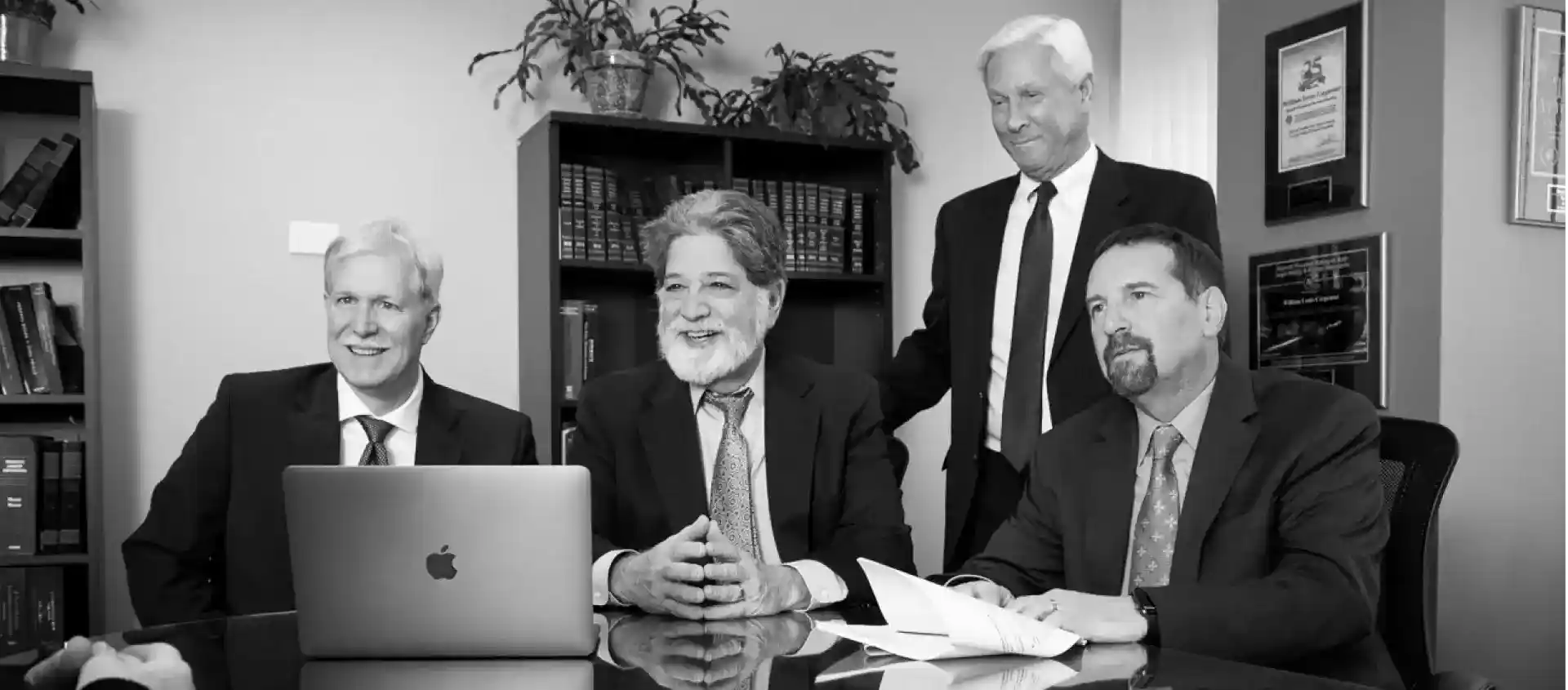During a domestic violence preliminary hearing, the prosecution presents evidence, such as witness testimony, to establish whether there is probable cause to proceed to trial. The defense may challenge the prosecution’s case through cross-examination but typically does not present witnesses at this stage.

Domestic violence cases can be some of the most difficult criminal cases, both emotionally and in terms of defending against them. However, one of the keys to beating a domestic violence case lies in understanding what the prosecutor needs to prove, how they can prove it, and whose testimony they need. While this is true in every criminal case, it’s especially relevant in those involving domestic violence charges.
At the law firm of Gerash Steiner, P.C., we have more than 30 years of experience successfully defending clients facing serious domestic violence cases. We pride ourselves in our ability to think outside the box to come up with the best possible defense for each of our clients. Contact us today.
What Is Domestic Violence?
The best place to start when trying to better understand domestic violence cases is with Colorado Revised Statute § 18-6-800.3. This statute defines domestic violence as an “act or threatened act of violence” against a person with whom you have or had an intimate relationship. Domestic violence is not limited to crimes of violence, as it also includes crimes committed against a person’s property.
What Is a Preliminary Hearing?
A preliminary hearing is a critical stage in many felony domestic violence cases. The preliminary hearing occurs after your arraignment but before the trial. The purpose of a preliminary hearing is to ensure that the continuation of the case is constitutionally justified based on the strength of the prosecution’s evidence. Thus, the purpose of a preliminary hearing is not to determine your guilt or innocence—but to assess whether the prosecution’s evidence establishes a prima facie case that you committed the crimes charged. In other words, the court’s job in a preliminary hearing is to determine whether there was probable cause to show that:
- A crime was committed; and
- You committed the crime.
If both of these questions are answered in the affirmative, the court will hold the case for trial or “bind over” the case.
Contact Us for a Free Consultation
What Happens During a Preliminary Hearing?
As a general rule, in domestic violence preliminary hearings, the alleged victim will take the stand to testify. Depending on the facts of the case, the arresting officer or a detective might also testify. Typically, the defense does not call witnesses during the preliminary hearing because doing so opens up a defense witness to cross-examination. However, if a defense witness’s testimony negates an element of the crime, a Colorado criminal defense attorney could recommend that they testify.
When a prosecutorial witness testifies, the district attorney will begin with a direct examination. During a direct examination, prosecutors should refrain from asking leading questions and instead ask open-ended questions that give the witness a chance to tell their story in their own words.
Once the district attorney completes their direct examination, your defense attorney will follow up with a cross-examination. A cross-examination is perhaps the most important part of the preliminary hearing, as this is where the witness is asked questions that challenge their story. Cross-examination also offers an opportunity to “lock in” a witness’s testimony. For example, if a witness says one thing to arresting officers on the day of the alleged crime, another thing at the preliminary hearing, and tells a third story on the day of trial—most jurors would question the witness’s credibility.
What Is the Goal of a Preliminary Hearing?
Your attorney’s goal during a preliminary hearing depends on the type of case and the prosecution’s evidence. The prosecution’s burden at a preliminary hearing is not especially high, so if your attorney believes that the case is likely to get bound over, they might focus on locking in the testimony of witnesses. On the other hand, if the prosecution’s evidence is thin or the crimes are overcharged, your attorney’s goal could be to get the charges dismissed or reduced.
What Happens After a Preliminary Hearing?
At the end of a preliminary hearing, a judge can do one of several things. First, if the judge determines that the prosecution’s evidence is sufficient to establish a prima facie case against you, they will hold the case over for a felony trial. On the other hand, if the prosecution’s evidence falls short, the judge can dismiss or reduce the charges.
Does the Alleged Victim Need to Appear at a Domestic Violence Preliminary Hearing?
The alleged victim typically needs to appear at a preliminary hearing; however, that is not always the case. Prosecutors might be able to proceed with a preliminary hearing and even go to trial without the alleged victim, especially if a police officer observed at least part of the incident that gave rise to the charges. The district attorney might also conduct a preliminary hearing without a victim if they have another witness, other than a police officer, who observed the incident or observed the alleged victim immediately after the incident. In short, do not make the mistake of assuming that the alleged victim will not come to court, even if they promise you that they won’t. Prosecutors send all witnesses a subpoena which legally compels them to appear. Despite the fact that prosecutors rarely act on ignored subpoenas, the possibility of getting into legal trouble compels some reluctant accusers to show up and testify.
Speak with an Experienced Colorado Domestic Violence Lawyer About Your Case Today
If you face domestic violence charges and want to learn more about what happens at a preliminary hearing for domestic violence in Colorado, it is imperative that you speak with a Colorado criminal defense attorney as soon as possible. At the law firm of Gerash Steiner, P.C., our dedicated domestic violence defense attorneys know how to defend against even the toughest domestic violence cases. We have more than three decades of experience aggressively defending the rights of men and women charged with serious domestic violence crimes, and we are prepared to develop a compelling defense against your charges. To learn more and to schedule a free consultation with a Colorado criminal defense lawyer, contact us today.


